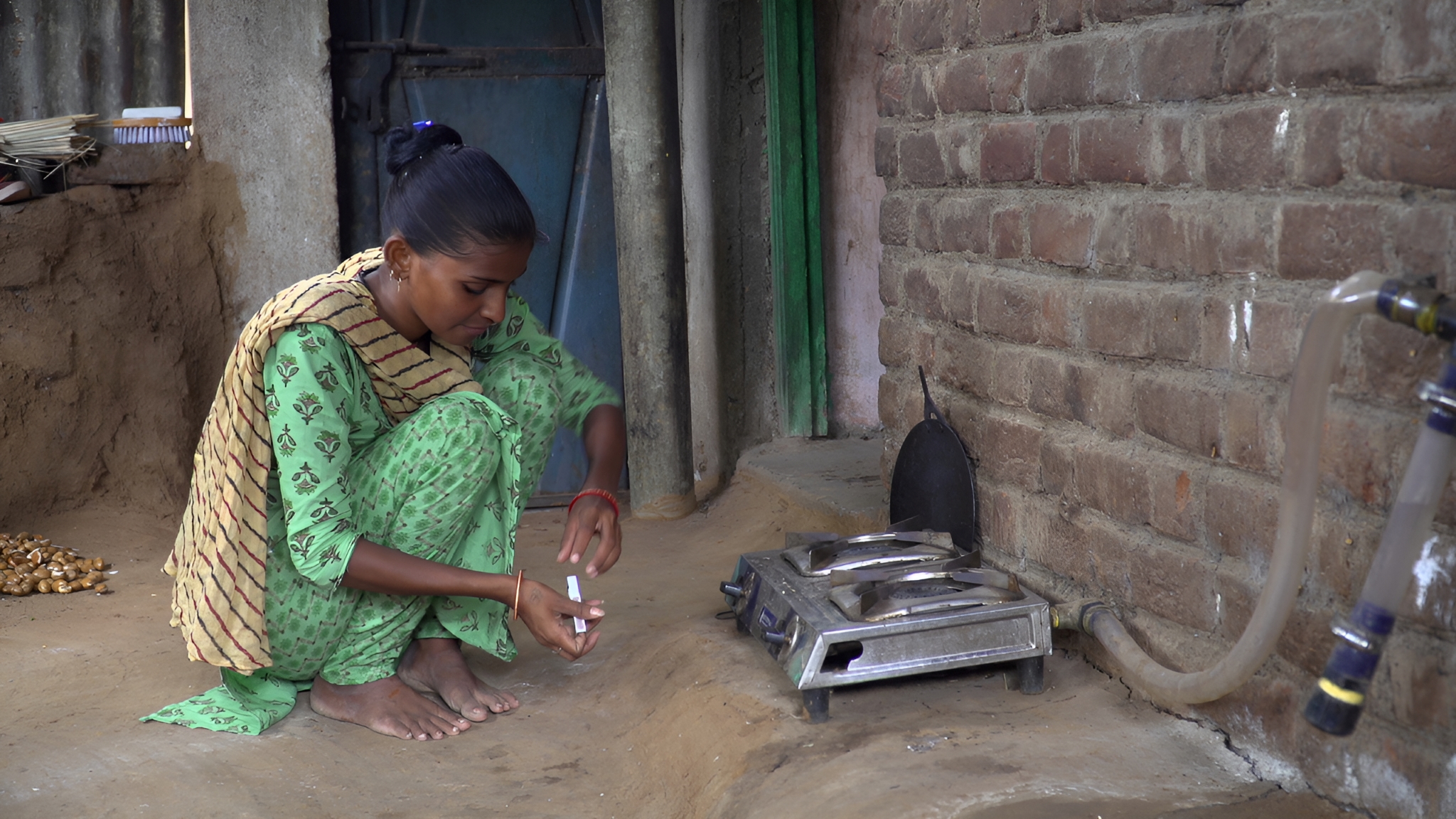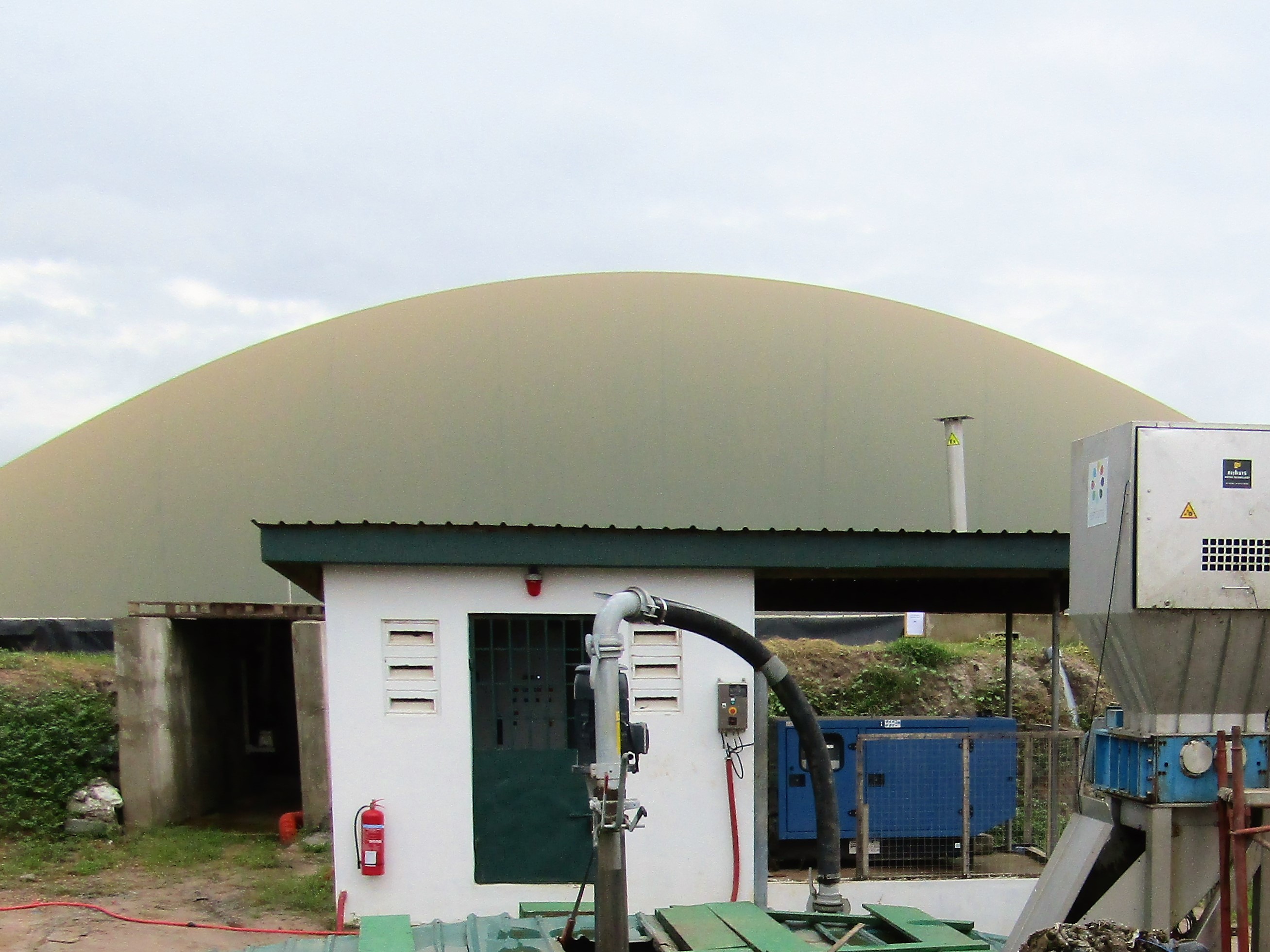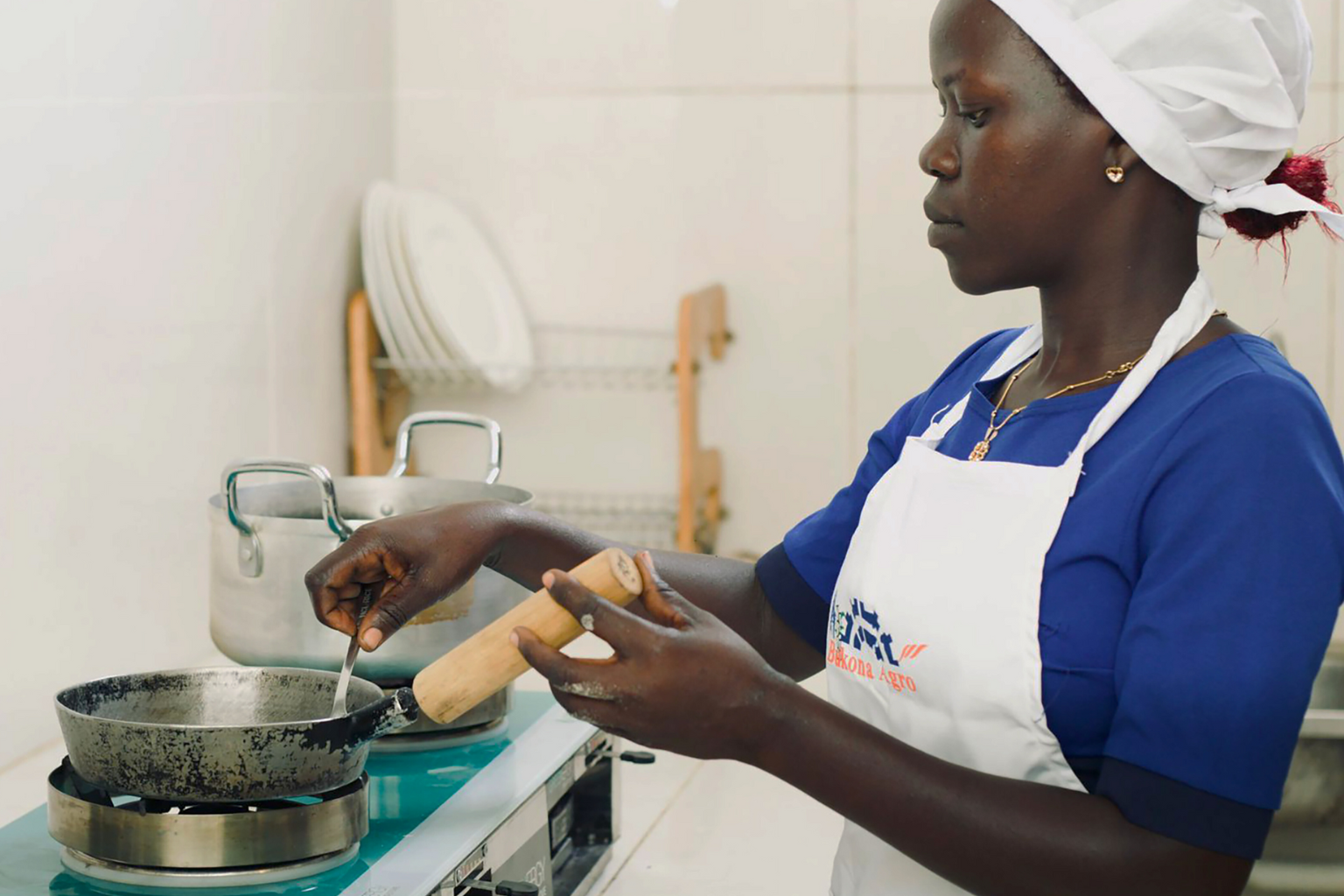Grassroot voices: how biogas is transforming the lives of rural women in India

©SEWA
The “Biogas for clean cooking, nutritious food and climate change mitigation: Voices from women from the grassroots” webinar, hosted by FAO in the context of the Global Bioenergy Partnership (GBEP), brought together grassroots voices from the Self Employed Women’s Association (SEWA) and expert insights from Bhimashankar Shektar, Chief Operating Officer at NDDB Mrida, to explore the transformative role of domestic biogas in rural development.
In India, with its 194 million rural households and a livestock population of 302 million, biogas from cattle waste could offer a clean, affordable alternative to firewood and LPG, improving health, saving time, and producing organic fertilizer, with a positive impact on livelihoods and the environment. Yet, biogas accounts for just 2% of rural fuel use, due to high upfront costs, LPG subsidies, and challenges in managing slurry or scaling community digesters.
Mr Shektar emphasized how biogas is a cost-effective and sustainable solution to ensure affordable access to clean energy and fertilizers to rural households. However, he noted that community-scale systems face logistical, economical and social barriers, including the need for shared cattle spaces and technical skills for biodigestor maintenance.
To address these barriers, the Self Employed Women’s Association (SEWA) promotes and provides subsidized loans for domestic biogas digesters, especially among rural women, helping them turn cattle waste into a clean cooking energy source.
During the webinar, three SEWA members, Ramilaben Somabhai Parmar, Hilarlben Solanki, and Indrabai Chandanshing Dumale, facilitated by Megha Desai, SEWA Senior Coordinator, shared their personal journeys with biogas adoption. Their stories painted a vivid picture of how clean energy access can transform daily life, and how their decision, though initially met with resistance from relatives, ultimately created positive ripple effects for both household and wider communities.
The three women explained how biogas freed them from hours of collecting firewood, enabling them to have free time for other productive activities and allow their children to attend school. Since adopting biogas technology, they have not once had to use their traditional wood stove or buy an expensive LPG bottle, demonstrating the effectiveness of the system for households with just a few cattle.
The biodigesters also offer a more hygienic solution for disposing of farm wastes and the digestate can be used as fertilizer, increasing soil organic carbon and improving crop yields.
The money saved on fuel and fertilizer, combined with increased food production, has led to better nutrition.
“Now we can afford to eat fresh vegetables every day, and not just once a week”, a woman said.
Beyond economic benefits, the shift to biogas dramatically reduced indoor air pollution, enhancing both family health and environmental outcomes.
Although the women’s experiences have been overwhelmingly positive, they acknowledged that there is still room for improvement – such as upgrading low-quality biogas stoves, supplying larger biodigesters for households with more cattle, and enhancing the management of excess digestate.
Recognizing the win-win solution presented by biogas and looking to address key barriers, NDDB Mrida is also supporting the uptake of biogas among smallholder farmers through a multi-faceted approach that includes financial, technical, market, and social interventions. By combining timely government subsidies with dedicated funding and carbon credits, the initiative reduces farmers' upfront investment to an affordable INR 6 000–8 000 per plant. Market adoption is encouraged through real-life success stories, while technical barriers are minimized with prefabricated, easy-to-maintain biogas systems and a robust five-year post-installation support network. Slurry management is enhanced with tools for efficient use and value addition, and a strong social focus ensures most plants are registered in the names of women, promoting inclusivity and empowerment in rural communities.
Inspired by this transformation, some women have gone further, embracing a new environmental responsibility: they have adopted solar systems, become climate advocates, and inspired others in their communities to embrace change, gaining further respect in their family and community. This is central to the SEWA ‘Hariyali Green villages’ initiative, aiming to enhance accessibility and affordability of clean energy technologies and improve livelihood opportunities at the household level in rural India.
The event, part of 2025 GBEP webinar series, has highlighted that biogas is more than a clean cooking solution: it’s a pathway to gender empowerment, sustainable agriculture, and climate action. While systemic challenges remain, the experiences and insights shared point to a clear path forward: investing in decentralized, community-driven energy solutions that put women and climate at the centre of the transition.


